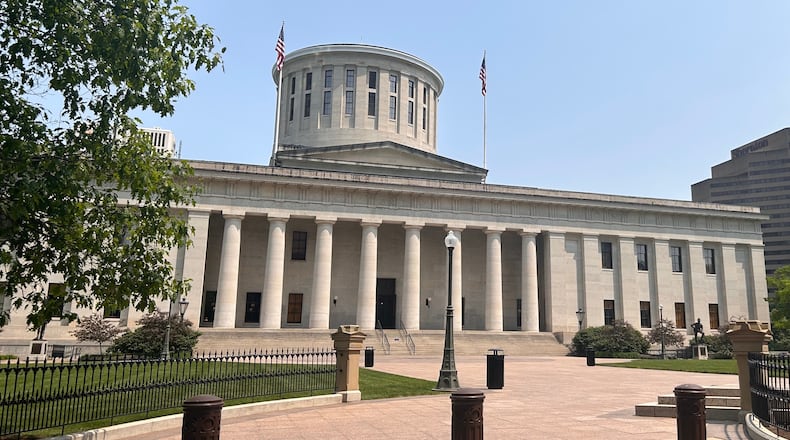Two “reasonable” methods were included in the law itself: photo identification, like a driver’s license or passport, or so-called “transactional data,” like records documenting a user’s mortgage, education history or employment.
The law also calls for these companies to “immediately delete” a user’s information after verification is completed.
Ohio’s attorney general will have the ability to bring civil action against any site that chooses not to comply with the state’s new age verification requirements.
With the law, Ohio joins a growing contingent of states intent on blocking minors’ access to pornography.
In April, Ohio House Finance Chair Brian Stewart, R-Ashville, told reporters that the idea has seen growing support in the House GOP caucus.
“I think, frankly, a lot of people believe that if you’re going to have obscene material on the internet, we should at least make sure that those who are not legally allowed to view it are not viewing it,” said Stewart, who oversaw the provision’s inclusion into the state budget.
Nearly half of the country’s state legislatures have passed similar laws in the past two years. The policy has gained considerable traction, with states like Michigan, Pennsylvania, Wisconsin and Minnesota contemplating similar legislation today, according to Free Speech Coalition, a trade advocacy group for adult content sites.
The Free Speech Coalition opposes mandated age verification laws. The organization argues that minors can use virtual private networks, or VPNs, to disguise their location and access sites. The organization has argued that the safeguard endangers a user’s private information; that users will begin to seek shoddy, alternative sites; and that mandated age verification is outright unconstitutional.
But, a 6-3 ruling from the Supreme Court of the United States in June rejected the Free Speech Coalition’s legal challenge to a Texas age verification mandate.
Justice Clarence Thomas’ majority opinion noted that the measure doesn’t infringe an adult’s right to free speech.
“Adults have the right to access speech obscene only to minors ... but adults have no First Amendment right to avoid age verification,” Thomas wrote.
For more stories like this, sign up for our Ohio Politics newsletter. It’s free, curated, and delivered straight to your inbox every Thursday evening.
Avery Kreemer can be reached at 614-981-1422, on X, via email, or you can drop him a comment/tip with the survey below.
About the Author

